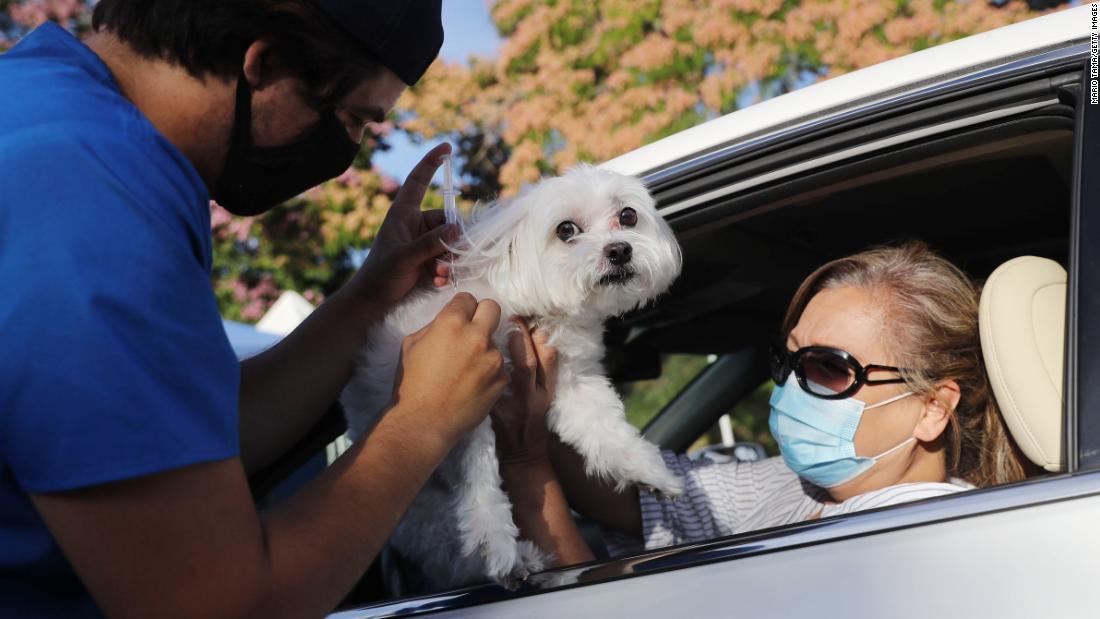“Based on the limited information available so far, the risk of animals, including pets, considering the spread of Covid-19 among humans is considered low,” said CDC official, Dr. Casey Barton Behravesh, said during a briefing on Monday.
Evidence suggests that Covid-19 probably originated in animals before it became widespread among humans.
“As of mid-January, we are aware of 187 animals from 22 countries with a confirmed SARS-CoV-2 infection,” Behravesh said, pointing out that it does not include mink on mink farms. She added that no animal deaths have yet been linked to the virus.
The CDC is closely monitoring research on coronavirus infections in animals and has categorized some animals based on their risk of infection. Animals that are highly susceptible to the virus include cats, hamsters, non-human primates, rabbits, mink and deer, Behravesh said.
Pets protected
Behravesh said that companion animals, especially cats and dogs, are the leading group of animal species affected by coronavirus.
Although the risk of transmission from animal to human is low, humans can spread coronavirus to pets, Behravesh said.
The CDC recommends that people treat pets in the same way they would protect their family members from Covid-19, by restricting contact with those outside the household. The agency recommends keeping cats indoors and preventing other pets from roaming freely. Masks should not be placed on pets as this may cause damage.
Infected people should avoid contact with pets, which means they should not kiss, cuddle or sleep in the same bed, the CDC says. In fact, people with coronavirus should try to arrange for another household to take care of pets. If that is not possible, the CDC says people should wear masks when dealing with their pets.
People who suspect that their pets have coronavirus should consult a veterinarian. Behravesh noted that among 93 cases of Covid-19 in cats and dogs in the U.S., 53% showed no symptoms. The most common symptoms reported in animals are signs of breathing, such as coughing or sneezing. Other symptoms reported include fever, lethargy, vomiting and diarrhea.
Pets that have tested positive for coronavirus should be isolated from humans and other animals, Behravesh said.
There is no evidence that pets carry or spread coronavirus on their skin or hair, and it is important not to wipe or bathe pets with chemical disinfectants, Behravesh said.
“Pet poison control has actually had an increase in calls as a result of this exposure to pets,” she said.
The U.S. Food and Drug Administration has not approved any drugs for the treatment or prevention of Covid-19 in animals, Behravesh noted.
